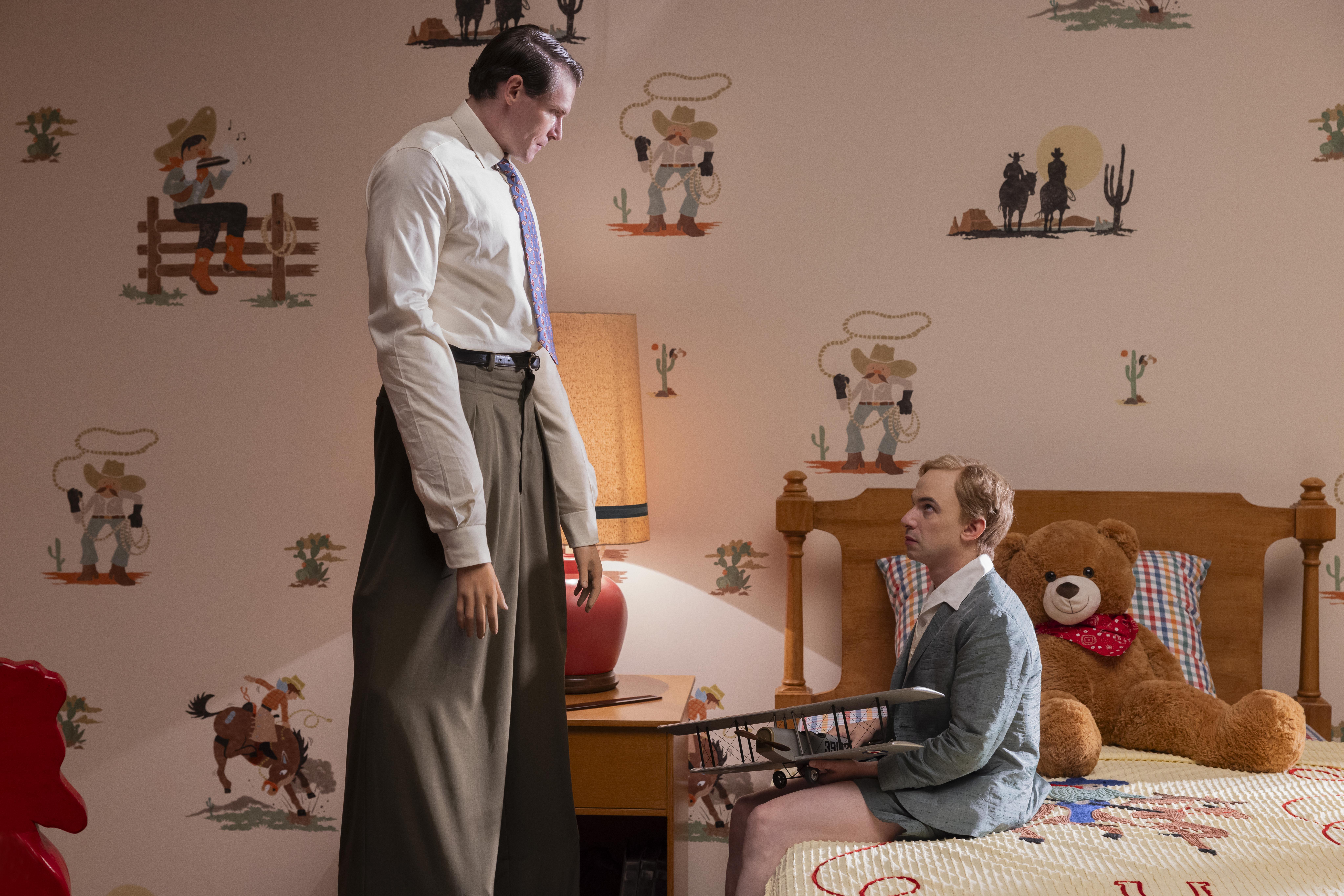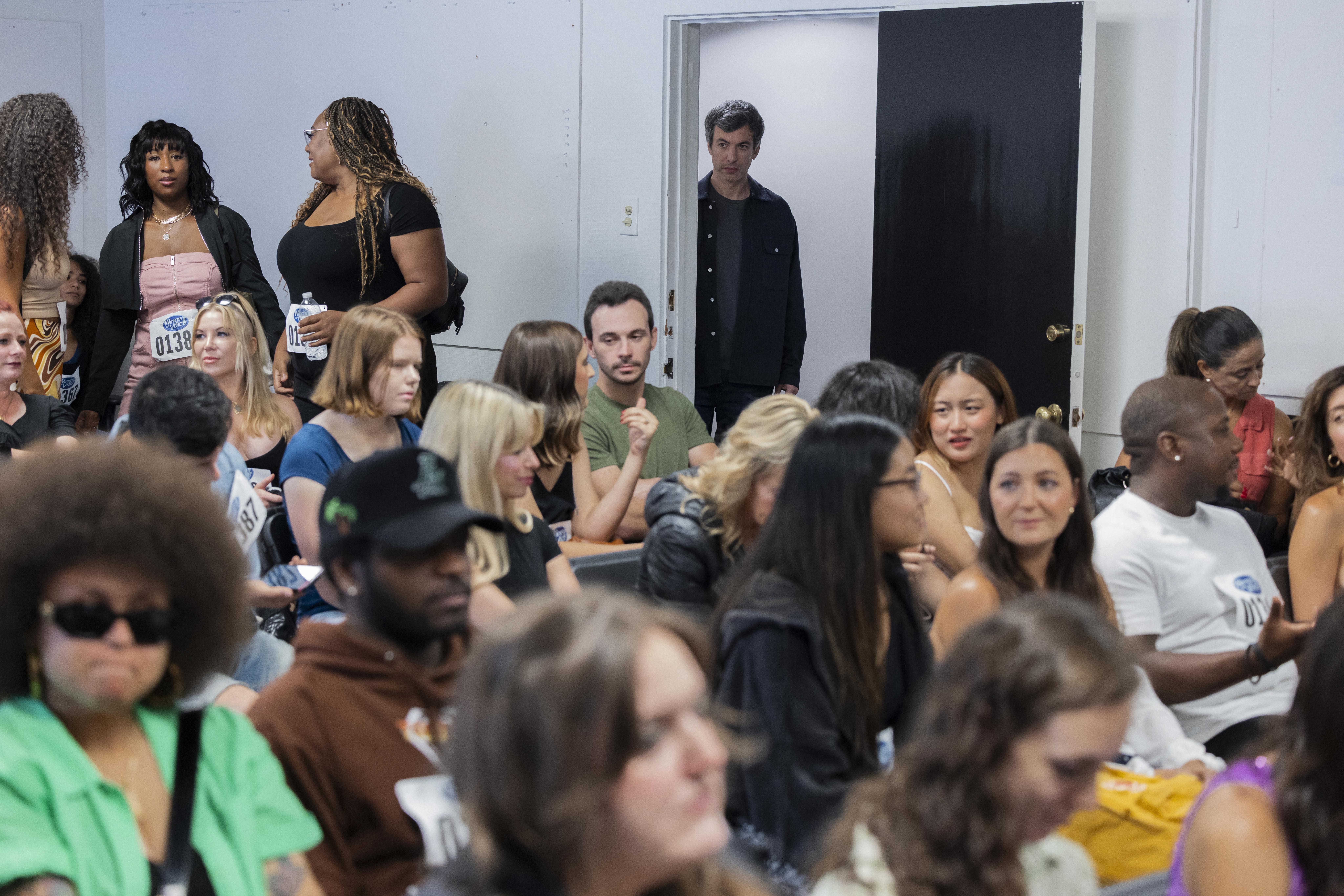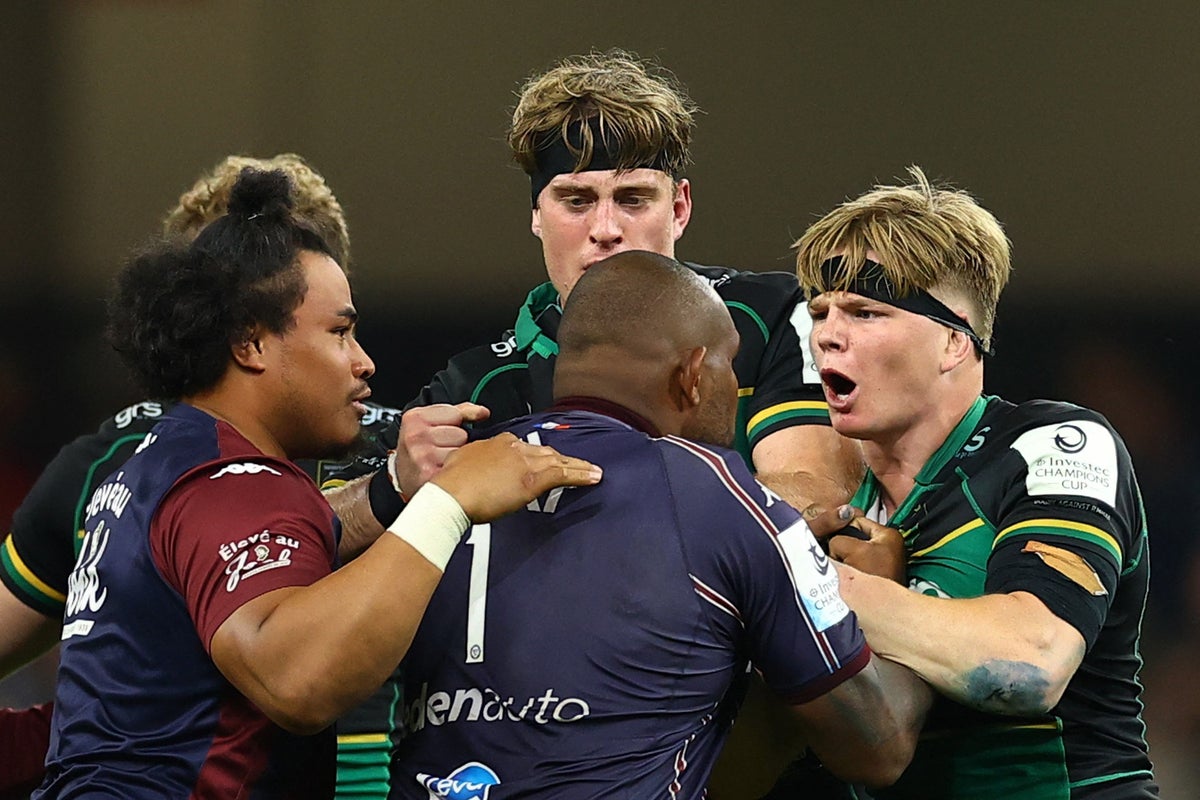ARTICLE AD BOX
I’ve always felt that sincerity is overrated,” narrates comedian Nathan Fielder in season two of The Rehearsal. “It just ends up punishing those who can’t perform it as well as others.” No throwaway gag could better capture Fielder’s paradoxical obsession with the concept of performance. Across his career, from prank show host to prestige showrunner, it seems that Fielder has developed increasingly inventive and confronting ways of asking the question: how can we know what’s real and what’s not?
The Canadian disrupter’s bizarre HBO docuseries probed at questions of farce versus authenticity in its first season. Its opening episodes saw Fielder help people prepare for difficult real-life situations by staging elaborate “rehearsals” so that they could practice in advance. The season is really impossible to neatly summarise, though, because over the course of its six instalments, Fielder adds cumulative layers of rehearsal and misdirection, until the whole thing descends into a strange, metafictional sort of performance art. It’s clear that what we’re watching isn’t “reality TV” in any meaningful sense, and trying to read it as such becomes exhausting.
Season two, which was hotly anticipated by the comedian’s cult transatlantic following and is about to arrive on Sky and Now in the UK, concerns itself with similar questions of how to perform well in life, particularly in social situations. Taking off from a strange starting point – the world of aviation – Fielder hypothesises that a large number of plane crashes result from miscommunications between co-pilots and captains. Self-consciously dipping his toe into a niche yet important issue, he suggests that pilots would benefit from controlled “rehearsals” of their own, which might help them be more honest with one another in the cockpit. Aware that, as a public prankster, he has a “deficit of credibility”, he recruits airline expert John Goglia to confirm that, in the moments preceding a disaster, co-pilots often do feel hesitant to challenge captains. Are you still with me? As I said, it’s one of the most unexplainable shows on TV.
In classic Fielder fashion, his search for answers becomes convoluted by a series of tangential plotlines including the staging of a new Canadian reality singing competition, an experiment including cloned dogs, an intricate “rehearsal” to help a pilot in his dating life, and a re-enactment of the life of pilot Sully Sullenberger, who landed a doomed plane in the Hudson River in 2009, saving all 155 people on board. As with season one, attempting to provide a synopsis would be pointless. But beneath the layers of irony and trickery, which at times border on edgelord humour, is a reflection on what it really means to be authentic.
In an episode called “Star Potential”, for example, Fielder is launching Wings of Voice, a singing competition inspired by his own time working on Canadian Idol. The show is judged by pilots, in a bid to help them practise being brutally honest with others. Fielder quickly notices that honesty and sincerity come easier to some people than to others, homing in on Mara’D, a pilot who remains well-liked by all the contestants she turns down. Fielder asks one contestant what Mara’D has that he does not, to which they reply, “her aura”. Fielder asks, deadpan: “And how do you change that?”
The joke veils what I see as Fielder’s genuine interest in the answer. “I believe that any human quality can be learned, or at least emulated,” he adds in a voiceover. The “Nathan” character that we see on screen is painfully socially awkward, and the subject of numerous gags about him missing social cues and not understanding how to connect to others. Later on in the series, the show plays heavily with the idea that he might unknowingly be autistic. While the scaffolding of scripted rehearsals, replica sets and fake reality shows may be farce, the questions of how to be honest with one another, how to perform socially – how to genuinely connect – linger in the air.

The poignancy of these questions is enhanced by Fielder’s use of “meta” storytelling, and his experimentation with the TV format itself. At any given moment in The Rehearsal, it is really impossible to know what’s contrived, and what’s reality. This often results in an intense kind of ethical unease, since we can’t be sure of how much awareness and agency the participants have. When a young hopeful singing contestant cries on screen after being rejected, for example, is she aware that the competition isn’t necessarily “real”? Does she ever get let in on the gag? In season one, the show leaned into an even worse reality-TV moral dilemma, in which a child actor playing Fielder’s son appeared to start to genuinely believe that Fielder was his father. The discomfort we feel when confronted by these problems is never fully resolved – we aren’t aware of the show’s production ethics, and know that everything we see on screen is somewhat manipulated to serve certain narrative ends.
After performing as a magician in his teenage years, Fielder cut his teeth in reality TV. He worked off screen on shows like Canadian Idol, but throughout the 2010s was also the host of Nathan For You, a docu-reality comedy in which Fielder helped struggling businesses with outlandish, expensive, and ultimately comedic, marketing techniques. I didn’t like Nathan For You – I felt uncomfortable about the use of often-poor and racialised business owners, wondering whether they were being exploited by a rich white comedian. Fans often argued that the “Nathan” character, a fictionalised version of Fielder, was always the one who put money on the line, was the clear butt of the joke, and ultimately helped businesses by putting them on TV.
It is hard to know which is “true”. But, throughout Fielder’s career, he has made it increasingly clear that he wants viewers to wrestle with these ethical questions, as part of a broader critique of reality TV. He grappled explicitly with issues of race and class in the industry in his 2022 drama The Curse, which followed a fictional property show accelerating gentrification in New Mexico. This felt like somewhat of a reflection on his work in Nathan For You. In The Rehearsal, there are numerous fourth-wall breaks, and moments where a “real person” is revealed to be an actor, emphasising how easily viewers can be led to believe something is real. There is a moment in the Wings of Voice episode in which Fielder shows us a handwritten score that reads “6”, only to slowly turn it upside down so that it becomes a “9”. The fact that we can never know what is true points towards the opaqueness of the reality TV format, which often presents itself as transparent.

Jason Mittell, film studies professor, author of Complex TV: The Poetics of Contemporary Television Storytelling, and die-hard Fielder fan, tells me that Fielder’s background in magic is not just relevant, but vital to understanding his current output. “Everything he’s done since is best understood as an extension of that form of entertainment,” he says. Rather than focusing on what’s real, Mittell thinks we should be attentive to the show’s distortions and illusions. “I believe that everything he presents on screen actually happened,” he tells me. “However, every moment is contrived and set up to create ‘good TV’. In the editing room, he manipulates chronology, omits footage, and adds voiceover. Who knows how accurate that version of reality is.” This mirrors and exaggerates the processes that happen in most reality TV, from “structured reality” shows like Made in Chelsea and Love Is Blind, to The Hills, which outraged viewers when it revealed that it was shot on a studio backlot in its finale in 2010.
Fielder’s approach provokes ire in his harshest critics. The focus tends to be on the perceived treatment of his participants, and how he positions himself in relation to them. During season one, New Yorker film critic Richard Brody described Fielder as “arrogant, cruel, and, above all, indifferent”, saying that the comedian “revels in his own thoughts as he tailors the conditions of his subjects’ lives to fit his storytelling”. On some level, this is definitely true, but, as Mittell suggests, isn’t that kind of the point?
There’s something labyrinthian and ultimately futile about trying to establish what is “real” in the Fielder-verse, just as we can’t ever really know if another person is being genuine, or just really good at pretending to be that way. When you relinquish the distinction between reality and fiction, deciding what you “like” or “dislike” also starts to feel pointless: does “Nathan” make me uncomfortable, or is it Fielder? Is the show itself unethical, or does it want me to feel that it is unethical?
What excites me about Fielder’s work isn’t moral alignment, in fact, it’s my discomfort. It’s a symptom of TV that takes risks, and feels like it’s on the frontier of a medium that has a tendency to stagnate. A show as surrealist as The Rehearsal wouldn’t be at all legible in any other moment in TV history. The meta element of the series – characterised by self-referencing and self-awareness – relies on the ability to rewatch, read about the show online, and put it in conversation with other TV series, including Fielder’s own body of work. Even with this context, it is still at times hard to comprehend, and almost impossible to write about.
That bafflement is something that we should embrace. As Mittell says: “Just like we watch a magic trick to be both enthralled by what happened, and inquisitive about how it happened, The Rehearsal invites us to be swept away by the story, and to figure out the tricks involved in telling it.”
‘The Rehearsal’ season two premieres at 10pm on Monday 26 May on Sky Comedy and Now


.jpg?width=1200&height=800&crop=1200:800)






 English (US) ·
English (US) ·